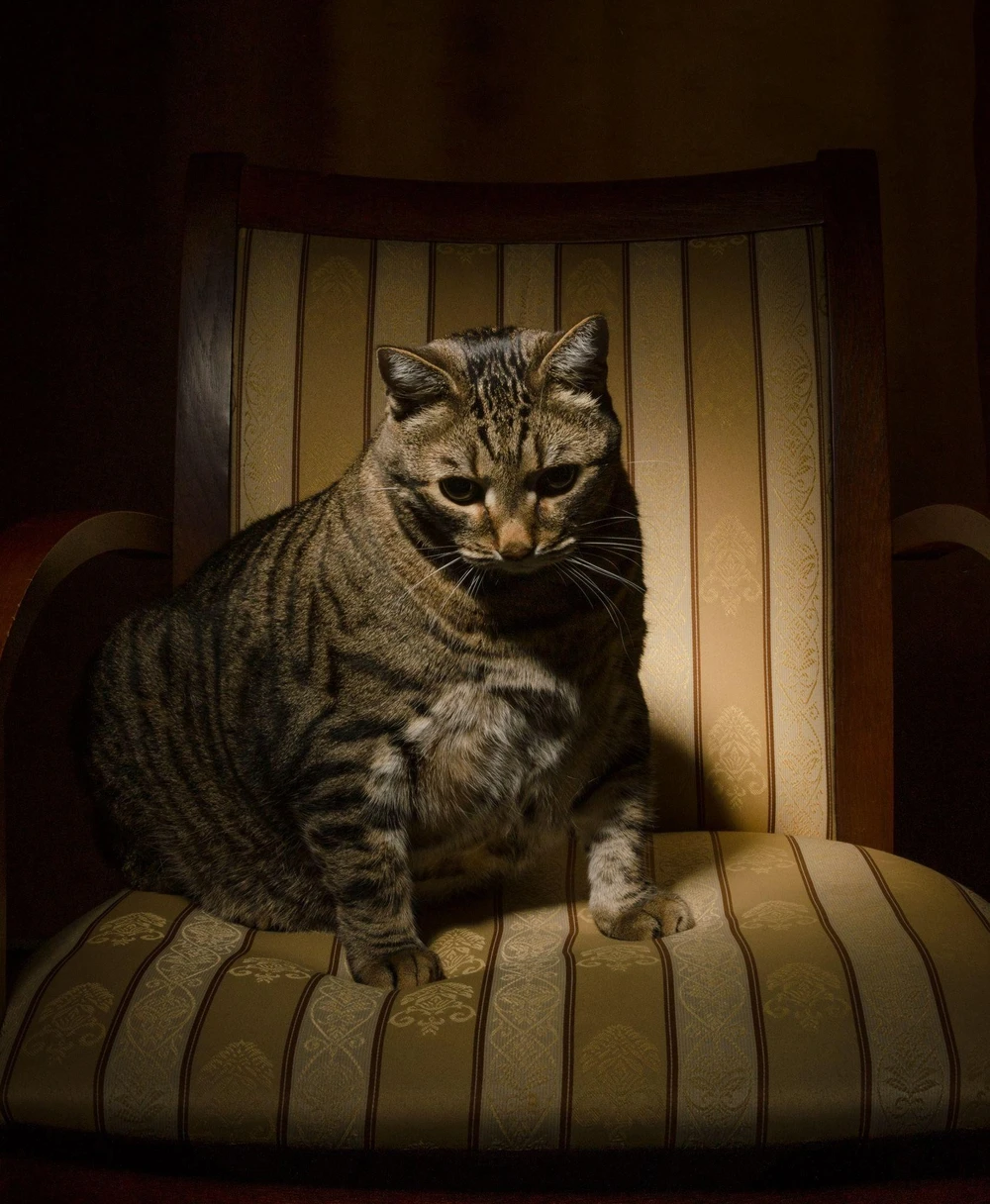The body’s need for insulin exceeds its ability to make or use it, leading to diabetes mellitus. People who have a lot of fat in their chest and abdomen can make it hard to breathe. Obesity can make cats more likely to get hepatic lipidosis, which can be fatal. Asthma. Some of the most common asthma symptoms in cats are panting, wheezing, and coughing, as well as a faster breathing rate.
A cat can’t get rid of asthma, but corticosteroids or bronchodilators can help. Scientists have found that fat can build up in people’s lungs for the first time. Fatty tissue in the walls of airways changes its shape, causing inflammation. That could cause wheezing and asthma, a study says.
Obese Cats…
Obese cats may be more likely to pant than cats of average weight, but this isn’t always the case. Also, panting can signify upper and lower airway diseases, lung diseases like pneumonia, cancer, and abdominal distention, among other things. A lot of the time, panting is a sign of pain, discomfort, or anxiety.
It’s not very common to see a cat pant or breathe hard, but it happens when it has trouble with its respiratory system (dyspnea). If you see a cat or dog panting, they don’t look very different from each other; cats often stand or crouch with their elbows bent away from their chest, and their head and neck stretched out.
Excess fat is bad for a cat’s health and lifespan. Obese cats are more likely to get many types of cancer, diabetes mellitus, heart disease, and high blood pressure. There is a link between osteoarthritis and faster joint degeneration.
Health Risks to Be Aware Of
- * Normal-weight cats may not live as long as cats too big for their size.
- * Increased weight can put too much stress on joints, tendons, and ligaments, leading to arthritic changes. It can be excruciating to jump down from high places.
- * Overweight cats may have high blood pressure, putting extra strain on the heart. Besides that, the heart has to work even more complex because there is more body tissue to pump blood to.
- * A lot of the time, obesity leads to diabetes mellitus because the body’s needs for insulin exceed its ability to make or use it.
- * People who have a lot of fat in their chest and abdomen can make it hard to breathe.
- * Obesity can make cats more likely to get hepatic lipidosis, which can be fatal.
- * They are more likely to get urinary tract disease if they are fat.
- * Because being overweight can hurt your cat’s heart and lung function, it can be more dangerous for them to have surgery. If an obese person’s liver or kidneys aren’t working well, anesthetic drugs may not be broken down properly, leading to anesthetic drug overdoses.
Do overweight cats breathe heavily?
Because they are overheating, which is more likely if they are overweight, and because they have type II diabetes, which is linked to being overweight, a fat cat might breathe faster. Some of the other things that could cause someone to live quickly are pain or stress, fever or shock, dehydration, anemia, lung disease, heart disease, and a buildup of toxic substances in the blood due to diabetes (mentioned), kidney failure, or poisoning, among other things.
Another reason to breathe quickly and pant is heatstroke. If your cat is breathing too quickly at rest, you should get it checked out as soon as possible. X-rays and other tests may be needed to figure out what’s wrong. This is how a fat cat looks like a meerkat: Some cat owners may say panting is when their cat breathes quickly.
Following exercise, your cat will likely urinate. Your energy is also noticed when cats are stressed or afraid when taken to the veterinarian in a car. Panting helps a cat lower its body temperature because the water on its mouth and tongue evaporates, allowing warm air to be exchanged for cool air.
Rapid Breathing..
Rapid breathing is linked to shallow breathing. If a kitty is breathing shallowly, its energy is because the rib cage’s motion is restricted. To avoid pain in living, they breathe rapidly and shallowly. The cat may have a broken rib or be in pain because of pleurisy. Serum, puss, or blood in the chest makes it hard to breathe. Pleural effusion is the most common cause of respiratory distress in cats, and it is called this because it comes from inside their bodies.
So, I don’t want to write more about this because I’m not a qualified veterinarian, but if your cat breathes faster than average when it should be at rest or calm, you should take your cat to their veterinarian. If you need to, you can watch and wait to see if the person’s breathing slows down. The bottom line is that chubby cats are better possible to breathe faster, but that doesn’t mean they will.
Read more here




